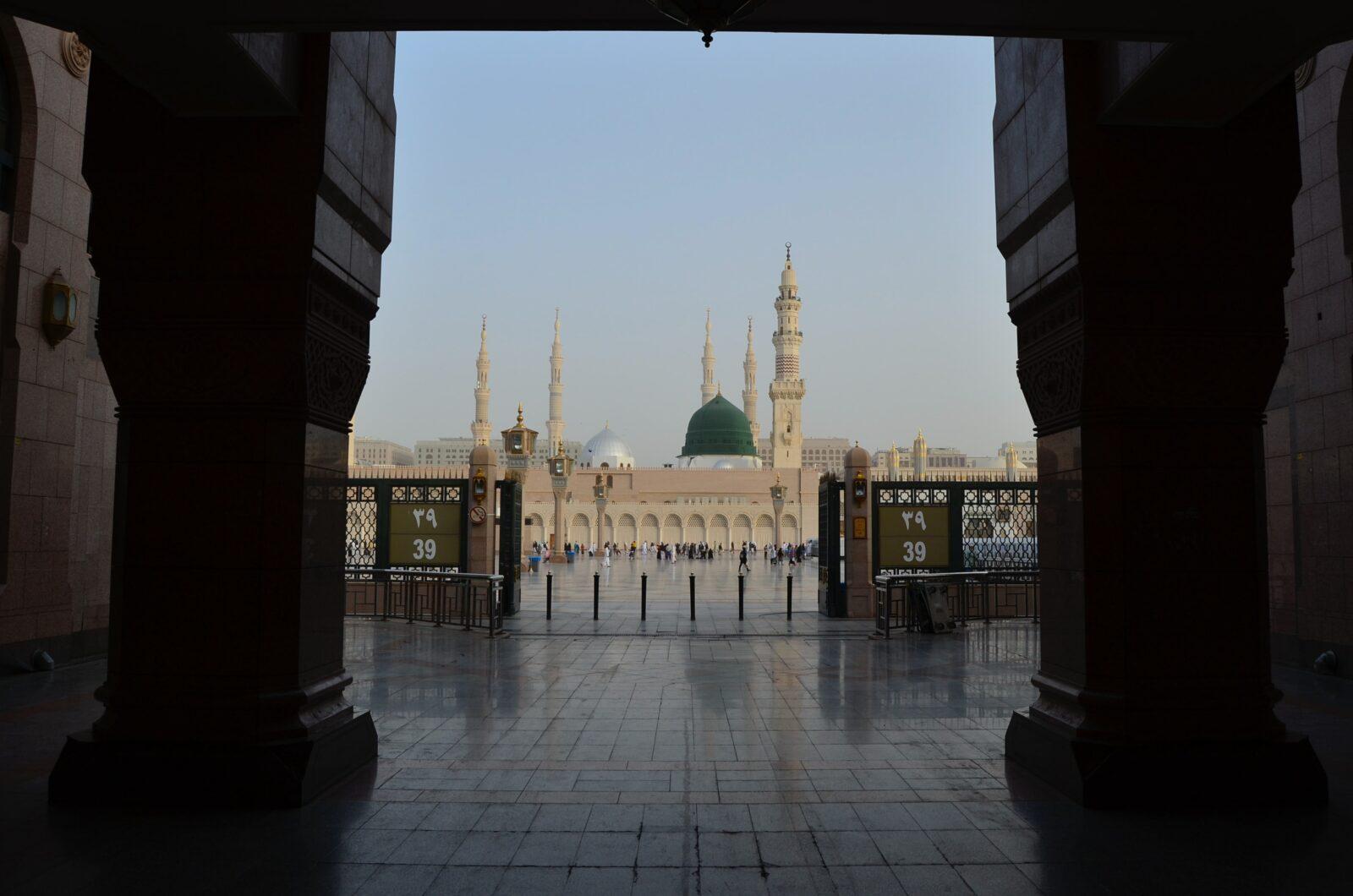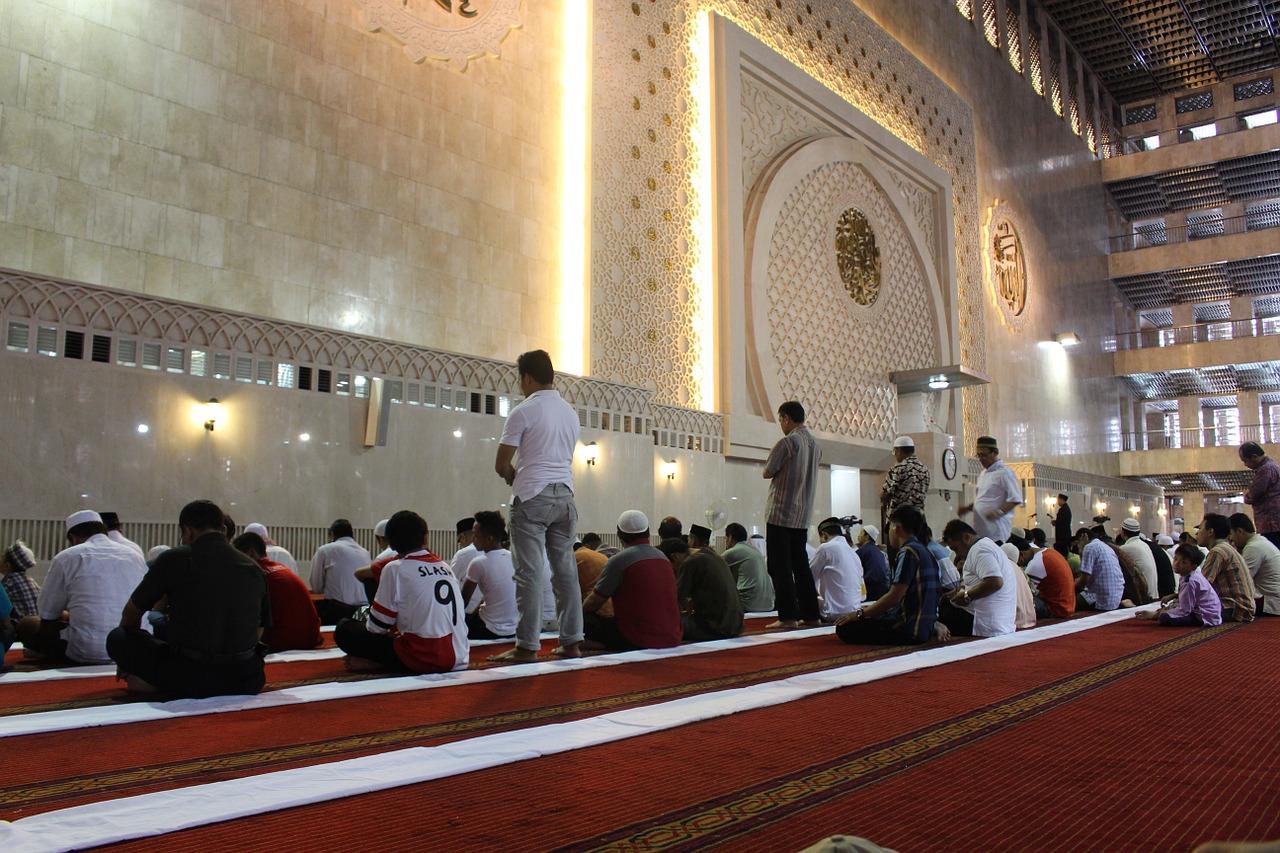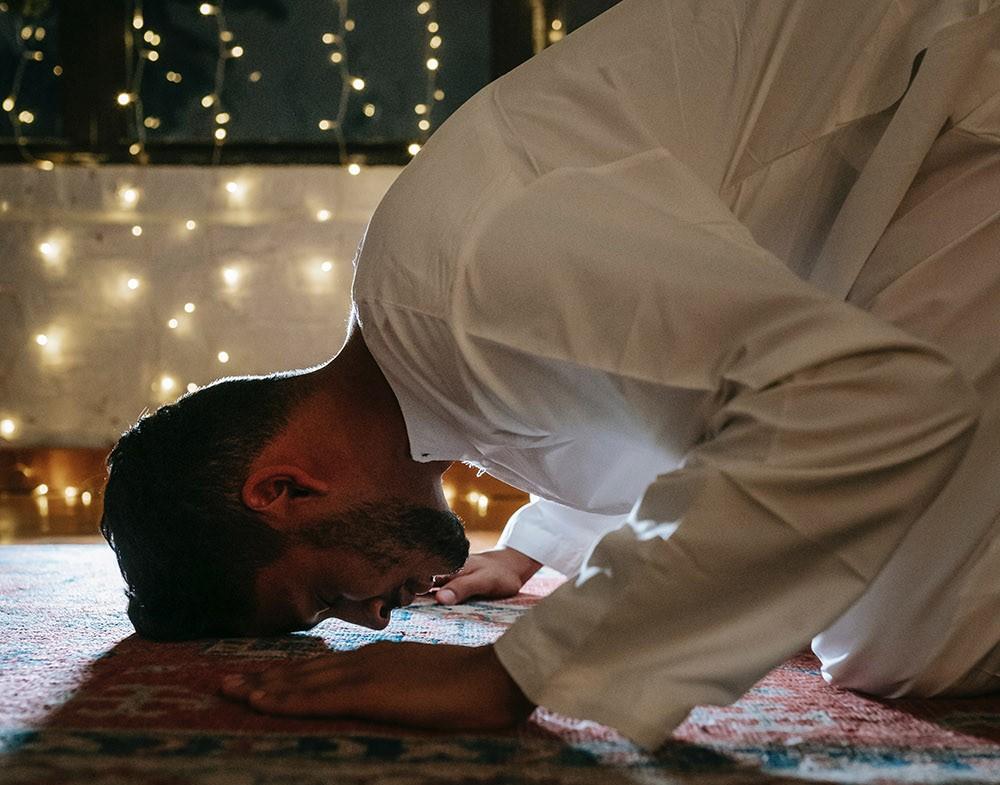Shukr
Thanks, acknowledgement, appreciation, gratitude. Thanks are due for specific recognized favours. The root letters shīn kāf rā (ش ك ر) occur 75 times in the Qur’an.
Do we know the real meaning of this word? The dictionary meaning is the quality of being grateful; readiness to show appreciation for something.
Islamically, shukr is thankfulness or gratitude for blessings as bestowed by the Bestower; our Rabb. It can be a feeling in the heart, words expressed on the lips, or gratitude expressed in physical actions. It is proven by obedience to Allah and by using what one has been blessed with of wealth, talents, abilities, intelligence, wisdom, etc. for the benefit of others. From this it can be understood that we are an ummah which is supposed to live in co-operation. Our wealth, our abilities our talents are all given to us by our Creator.
Some ayahs in this regard are:
And [recall, O Children of Israel], when Moses said to His people, “Remember the favour of Allah upon you when He saved you from the people of Pharaoh, who were afflicting you with the worst torment and were slaughtering your [newborn] sons and keeping your females alive. And in that was a great trial from your Lord. (Surah Ibrahim 14:6)
And [remember] when your Lord proclaimed, “If you are grateful, I will surely increase you [in blessings]; but if you deny, indeed, My punishment is severe.“ (Surah Ibrahim 14:7)
Knowing our Creator brings into perspective the whole scheme of life in relation to our Creator’s Plan. Within it is the journey of the soul struggling striving. Without this knowledge one is still in darkness. ‘Thulumaat’ is the word, a plural form, meaning ‘many darknesses’ – darknesses of doubt, uncertainty, hypocrisy or the arrogance to rely only on one’s own intellect while considering oneself a Muslim. As stated in Surah Ibrahim, v. 1: [This is] a Book which We have revealed to you, [O Muhammad], that you might bring mankind out of darknesses into the light.
Among the names of Allah are:
- Al-Wahhāb – The Bestower – He who grants provisions, favours and blessings.
- Ar-Razzāq – The Provider – He who continually provides everything required by His creations during their decreed existence. His provision includes guidance.
- Al-Ḥakeem – The Wise – He whose wisdom includes precise, perfect and absolute knowledge of all realities and outcomes, according to which He decrees and causes circumstances and occurrences.
These names will evoke gratitude in the mind of anyone who recognizes his complete dependence on Allah for the blessing of his continued existence.
Understanding Shukr further from the Qur’an
Gratitude recognises a reason and purpose to creation. Several ayahs illustrate various aspects of shukr:
“Then remember Me; I will remember you. Be grateful to Me, and do not reject Me.” (Surah al-Baqarah 2:152)
Indeed, We guided him to the way, be he grateful or be he ungrateful. (Al-Insān; 76:3)
Believing in Allah implies shukr or gratitude as opposed to not believing which is kufr or ingratitude.
“It is He Who brought you forth from the wombs of your mothers when you knew nothing; and He gave you hearing and sight and intelligence and affection: that you may give thanks (to Allah).” (Surah an-Naḥl, 16:78)
Allah has created these faculties in man to enable him to worship his Lord, and he uses all these sense organs, abilities and strengths to obey his Master.
Favours are multiplied with gratitude: “If you are grateful, I will surely increase you [in favour]; but if you deny, indeed, My punishment is severe.” (Ibrahim 14:7)
Prophet Luqmān, when teaching and advising his son, said: “And whoever is grateful is only grateful for [the benefit of] himself.” (Luqmān 31:12)
Shukr is by action: “Work, O family of Dāwūd, in gratitude.” (Saba’ 34:13)
Allah did not tell the family of Dāwūd to be grateful. Rather, He said to work in gratitude.
Allah has told us that His pleasure may be attained through gratitude: “And if you are grateful, He is pleased with it for you…” (Az-Zumar 39:7)
“… And We will reward the grateful.” (Āli ‘Imrān 3:145)
Allah has described the people of gratitude as being very few. “… But few of My servants are grateful!” (Saba’ 43:13)
Allah praised Prophet Ibrāheem for being grateful for His favours:
[He was] grateful for His favours. Allah chose him and guided him to a straight path. (An-Naḥl 16:121)
We should remind ourselves of the Day that Allah shows His appreciation, saying:“Indeed, this for you is a reward, and your effort has been appreciated.” (Al-Insān 76:22)
Gratitude is the way we should live. It provides a perspective by which we can view life in its entirety and not be overwhelmed by temporary circumstances. Live with what has been given you of favours, blessings, trials and afflictions. Accept His decrees in your lives. And let us work to build contentment in our minds and hearts, because Allah has said:
“And He gave you from all you asked of Him. And if you should count the favours of Allah, you could not enumerate them. Indeed, mankind is [generally] most unjust and ungrateful.” (Ibrahim 14:34)
We need to ask Allah for the ability to have shukr for the blessings He gave us.
Supplications for Shukr from the Qur’an and Sunnah
“My Lord, enable me to be grateful for Your favour which You have bestowed upon me and upon my parents, and to do righteous good deeds of which You will approve, and make my offspring good. Indeed, I have turned to You in repentance, and indeed, I am of the Muslims.” (Al-Aḥqāf 46:15)
Muʽadh bin Jabal (may Allah be pleased with him) reported:
The Messenger of Allah (ﷺ) held my hand and said, “Muʽadh, by Allah, I love you. And I advise you not to miss supplicating after every prayer: Allāhumma aʽinnī ʽala dhikrika wa shukrika wa ḥusni ʽibādatik (O Allah, help me to remember You, be grateful to You and worship You well).“ (Abu Dāwūd and An-Nasā’i)
The Relationship between Ṣabr and Shukr
Appreciation of blessings (shukr) is complementary to patience (ṣabr). Patience begins with control, but acceptance is better; and gratitude for recognized blessings is good, but thankfulness during trials of hardship is better. Thus, ṣabr and shukr merge at the highest level in the soul of the Muslim believer.
In every affliction there are points to remember which require shukr as well as ṣabr:
- That Allah prevented the ordeal from being greater than it was.
- That since it was decreed for the servant and therefore inevitable, it has now occurred and is no longer before him.
- That this trial was an expiation for sins, and as such, the penalty was not postponed until the Hereafter, where it would have been much more severe.
- That even in one’s own lifetime, certain benefits may be gained from such an experience, for example, the strengthening of character or a lesson learned – In any case, the reward is always greater than the adversity.
- That the casualty was not the servant’s religion, i.e., he did not lose his faith or his resolve.
وَاسْتَعِينُواْ بِالصَّبْرِ وَالصَّلَاةِ وَإِنَّهَا لَكَبِيرَةٌ إِلاَّ عَلَى الْخَـاشِعِينَ
And seek help through patience and prayer, and indeed, it is difficult except for the humbly submissive [to Allah]. (Surah al-Baqarah 2:45)
Suhaib reported that the Messenger of Allah (ﷺ) said, “Amazing is the affair of the believer for there is good for him in every matter, and this is not except for the believer. If something good happens to him, he thanks Allah and that is good for him, and if something bad befalls him, he shows patience and that is good for him.” (Saheeh Muslim)
Satan’s primary mission is to make human beings ungrateful. The Qur’an quotes him as saying: “Then I will certainly come to them from before them and from behind them, and from the right and from the left, and You will not find most of them grateful.”
(Al-ʽArāf 7:17)
The Difference between Shukr and Ḥamd
Ḥamd
Ḥamd (root letters: ح م د) means praise, commendation, glorification, exaltation.
Ḥamd (praise) has a wider meaning than shukr (thanks) and includes it. Praise is in gratitude for all blessings in general, apparent and unapparent, as well as acknowledgement of the Lord’s perfect attributes. It shows us our humble position and the path to achieve His acceptance.
And He is Allah; there is no deity except Him. To Him is [due all] praise in the first [life] and the Hereafter. And His is the [final] decision, and to Him you will be returned. (Sūrah al-Qaṣaṣ, 28:70)
Praise implies recognition of Allah’s favours, what is known of them and what is not known. The āyah confirms that all kinds and forms of praise are due to Allah alone and that He alone is worthy to praise Himself. And it teaches how Allah should be praised.
Al-ḥamd (praise accompanied by reverence) is due to Allah at all times and in all conditions. To praise Him at the beginning and end of every action and every effort is a fundamental principle of Islam, for it expresses recognition of His innumerable favours.
Praise and thanks to Allah are the basis of happiness. Grateful doesn’t mean complacent. When being grateful we strive to improve but we are content. It is about creating in us a positivity which doesn’t come about if we continue to see the proverbial ‘glass’ as ‘half empty’. When we see it as at least ‘half full’ we would have corrected our attitude, which translates as the biggest blessing of all. To be able to appreciate everything, from raindrops to the sounds of chirping birds at fajr to our trillions of healthy cells which Allah is protecting to all the countless favours Allah has bestowed on us eliminates sadness and depression.
Let us conclude with this supplication by the Prophet (ﷺ):
“O Allah, I seek refuge in Your acceptance from Your anger, in Your forgiveness from Your punishment, and I seek refuge in You from You. I cannot adequately praise You. You are as You have praised Yourself.”
Wa aakhiru daʽwānā anil-ḥamdulillāhi rabbil-ʽaalameen.
And our final prayer is: “Praise to Allah, Lord of the Worlds.”
References:
- The Qur’an ‒ English Meanings and Notes by Saheeh International
- Tafseer Ibn Katheer
- Realities of Faith by Umm Muhammad








 Dr. Bilal Philips
Dr. Bilal Philips